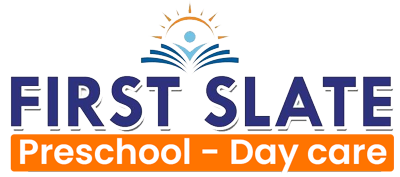Pre School
In the realm of early childhood education, preschools play a pivotal role in laying the foundation for a child's academic, social, and emotional development. But what exactly are preschools, and why are they deemed essential for children's growth and learning? In this comprehensive guide, we delve into the intricacies of preschool education, exploring its purpose, benefits, and key features.
What are Preschools?
Preschools, also known as nursery schools, are educational establishments specifically designed to cater to the needs of children between the ages of three and five, prior to their enrolment in kindergarten or elementary school. Unlike daycare centres, which primarily offer childcare services, preschools focus on early childhood education, providing a structured learning environment that fosters cognitive, social, and emotional development.
What are the Purpose of Preschool Education ?
The primary goal of preschool education is to prepare young children for the academic and social challenges they will encounter in elementary school and beyond. Through age-appropriate activities and guided instruction, preschools aim to cultivate essential skills such as language development, literacy, numeracy, problem-solving, and social interaction.

Key Features of Preschool Programs
Preschool curricula are carefully crafted to meet the developmental needs of young children and align with established educational standards. While specific programs may vary, most preschools incorporate the following key features:
- Play-Based Learning Play is the cornerstone of early childhood education, serving as a natural vehicle for exploration, creativity, and discovery. Preschools utilize play-based activities to engage children in hands-on learning experiences that promote skill development and stimulate their curiosity.
- Structured Routines Consistent daily routines provide children with a sense of stability and predictability, helping them feel secure and confident in their environment. Preschools establish structured schedules that balance periods of active play, quiet time, group activities, and individual instruction.
- Socialization Opportunities Preschools offer valuable opportunities for children to interact with their peers, learn social skills, and develop positive relationships. Group activities, cooperative games, and collaborative projects encourage teamwork, communication, and empathy.
- Language and Literacy Development Language-rich environments are integral to preschool education, fostering vocabulary expansion, language fluency, and early literacy skills. Preschools incorporate storytelling, rhyming games, phonics activities, and pre-writing exercises to support language development.
- Math and Science Exploration Preschoolers are natural scientists and mathematicians, eager to explore the world around them and make sense of patterns, shapes, and numbers. Preschool programs introduce basic math concepts through hands-on activities, counting games, sorting exercises, and simple experiments.
- Fine and Gross Motor Skills Physical development is an essential component of early childhood education, as children refine their motor skills and coordination through active play and movement-based activities. Preschools offer opportunities for both fine motor practice (e.g., drawing, cutting, tracing) and gross motor play (e.g., running, jumping, climbing).
- Cultural Awareness and Diversity Preschools celebrate cultural diversity and promote inclusivity by exposing children to a variety of traditions, customs, and perspectives. Through multicultural literature, music, art, and festivals, preschoolers develop an appreciation for different cultures and identities.
Benefits of Preschool Education
Research has consistently shown that participation in high-quality preschool programs yields numerous benefits for children, both in the short term and long term. Some of the key benefits include:
- School Readiness Preschool graduates enter kindergarten better prepared academically, socially, and emotionally, giving them a strong foundation for future academic success.
- Enhanced Cognitive Skills Preschool education stimulates brain development and enhances cognitive skills such as problem-solving, critical thinking, and memory retention.
- Improved Social Skills Interaction with peers and teachers in a structured setting helps children develop essential social skills such as communication, cooperation, sharing, and conflict resolution.
- Increased School Engagement Children who attend preschool are more likely to demonstrate positive attitudes towards learning, engage actively in classroom activities, and develop a lifelong love of learning.
- Higher Educational Attainment Studies have shown that preschool attendance correlates with higher rates of high school graduation, college enrolment, and career achievement.
- Long-Term Benefits The positive effects of preschool education extend beyond the early years, contributing to better academic performance, higher earning potential, and improved overall well-being in adulthood.
In summary, preschools play a vital role in shaping the future of our children by providing them with a solid educational foundation and valuable life skills. Through play-based learning, structured routines, socialization opportunities, and targeted instruction, preschools prepare young learners for success in school and beyond. By understanding the essence of preschool education and its myriad benefits, parents and educators can make informed decisions to support children's early learning exper
What age range does First Slate Preschool & Daycare cater to?
First Slate welcomes children from ages 2 to 5 years old. Our programs are designed to cater to the developmental needs of toddlers and preschoolers.
What are the operating hours of First Slate Preschool & Daycare?
We are open Monday through Saturday from 9:00 AM to 5:00 PM. We understand the demands of working parents and strive to provide flexible hours to accommodate their schedules.
What is the curriculum like at First Slate Preschool & Daycare?
Our curriculum is based on a blend of play-based learning and structured activities designed to foster social, emotional, cognitive, and physical development. We incorporate age-appropriate educational practices to prepare children for kindergarten and beyond.
What safety measures are in place at First Slate Preschool & Daycare?
The safety and well-being of our children are paramount. We maintain a secure facility, conduct regular safety drills, and adhere to strict protocols for child supervision. Our staff members are trained in CPR and first aid, and we prioritize cleanliness and hygiene throughout the premises.
Are meals provided at First Slate Preschool & Daycare?
Yes, we provide nutritious meals and snacks as part of our program. Our menus are carefully planned to meet dietary requirements and accommodate any food allergies or restrictions.
What opportunities are there for parental involvement at First Slate Preschool & Daycare?
We encourage parental involvement through various means, including parent-teacher conferences, volunteer opportunities, and special events such as family nights and holiday celebrations. We believe that a strong partnership between parents and educators is essential for a child's success.




